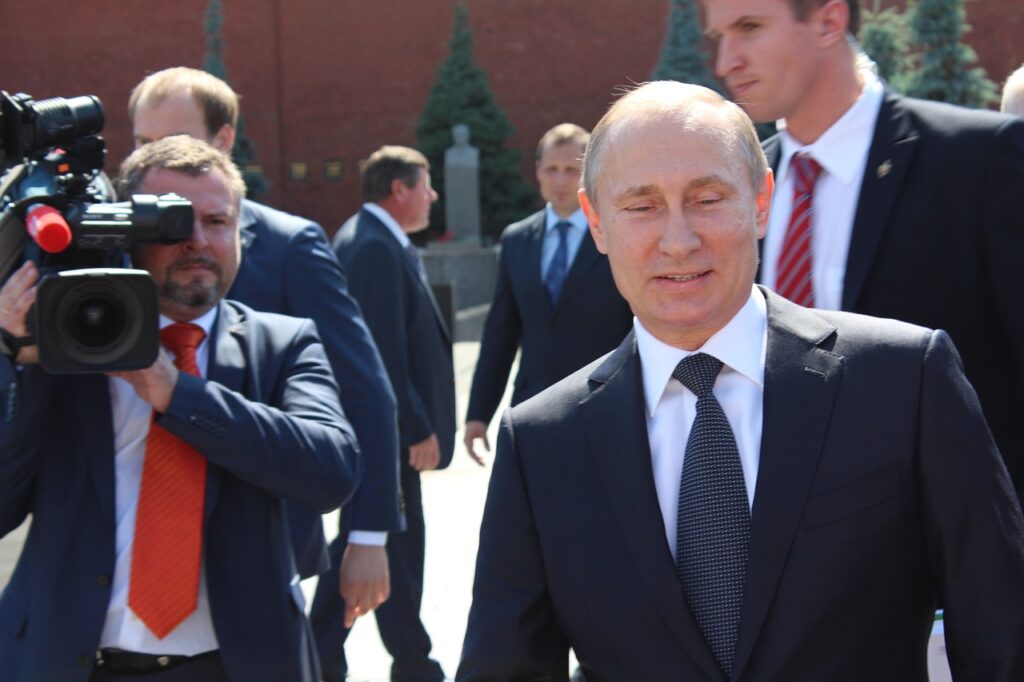The International Criminal Court (ICC) was established in 2002, with the aim of prosecuting individuals responsible for genocide, crimes against humanity, and war crimes. The ICC is a court of last resort, meaning that it only intervenes when national judicial systems are unable or unwilling to do so. Since its creation, the ICC has investigated and prosecuted cases in countries such as Sudan, Libya, and the Democratic Republic of Congo.
However, the ICC’s jurisdiction remains controversial, with some countries refusing to recognize its authority. Russia, for example, is not a signatory to the Rome Statute, which established the ICC. Despite this, the ICC has recently announced its intention to investigate alleged war crimes committed by Russian President Vladimir Putin and other top officials.
The charges against Putin
The ICC’s charges against Putin relate to Russia’s annexation of Crimea in 2014 and its ongoing involvement in the conflict in eastern Ukraine. The ICC alleges that Putin and other top officials are responsible for war crimes, including murder, torture, and enforced disappearances.
The ICC’s prosecutor, Fatou Bensouda, stated that there was a “reasonable basis to believe” that crimes had been committed by Russian forces and their proxies in Ukraine. Bensouda also noted that the investigation would be conducted independently and impartially.
Accusations of war crimes in Ukraine
Russia’s annexation of Crimea in 2014 was met with international condemnation, with many countries viewing it as a violation of international law. Since then, the conflict in eastern Ukraine has resulted in thousands of deaths and displacement of civilians.
The ICC’s charges against Putin and other officials relate to their alleged involvement in the conflict. The ICC alleges that Russian forces and their proxies committed war crimes, including murder, torture, and enforced disappearances. The ICC also alleges that Russian forces used prohibited weapons, such as cluster munitions, in civilian areas.
Russia has denied the allegations and has accused the ICC of being biased against it. The ICC’s investigation is ongoing, and it remains to be seen whether the court will be able to gather sufficient evidence to prosecute Putin and other officials.
The role of the ICC in international justice
The ICC’s charges against Putin highlight the role of the court in holding individuals accountable for war crimes, crimes against humanity, and genocide. The ICC is unique in that it is the only permanent international court that has the power to prosecute individuals.
However, the ICC’s jurisdiction remains limited, given that not all countries are signatories to the Rome Statute. In addition, the ICC has faced criticism for its handling of cases and the length of time it takes to bring individuals to trial.
Despite these criticisms, the ICC remains an important institution in the fight against impunity for war crimes and other atrocities.
Criticisms of the ICC’s charges against Putin
The ICC’s charges against Putin have faced criticism from various quarters. Russia has accused the ICC of being biased against it and has questioned the court’s jurisdiction. Some legal experts have also questioned the ICC’s ability to prosecute individuals who are not signatories to the Rome Statute.
In addition, some have argued that the ICC’s charges against Putin are politically motivated. They argue that the ICC is being used as a tool by Western countries to put pressure on Russia and that the charges are unlikely to lead to an actual trial.
Potential outcomes of the ICC’s case against Putin
The ICC’s case against Putin is still ongoing, and it remains to be seen what the outcome will be. If the ICC is able to gather sufficient evidence, it may issue arrest warrants for Putin and other officials.
However, it is unlikely that Putin will ever be brought to trial, given that Russia does not recognize the ICC’s jurisdiction. In addition, Russia has a history of ignoring international legal rulings, such as the International Court of Justice’s 2014 ruling that Russia must refrain from supporting separatist groups in eastern Ukraine.
The impact of the ICC’s charges on global politics
The ICC’s charges against Putin have significant implications for global politics. The charges are likely to further strain Russia’s relationship with the West and could lead to increased tensions between Russia and other countries.
In addition, the charges could have wider implications for international law and diplomacy. The case could set a precedent for the ICC’s jurisdiction over non-signatories to the Rome Statute, and it could also highlight the need for greater cooperation between countries to hold individuals accountable for war crimes and atrocities.
What the ICC’s charges against Putin mean for the future of international justice
The ICC’s charges against Putin are a significant development in the fight against impunity for war crimes and crimes against humanity. The charges highlight the need for greater international cooperation to hold individuals accountable for atrocities committed during conflicts.
However, the charges also raise questions about the ICC’s jurisdiction and its ability to prosecute individuals who are not signatories to the Rome Statute. The case against Putin is likely to be a long and complex one, with significant implications for global politics and international law.
Despite these challenges, the ICC remains an important institution in the fight against impunity for war crimes and other atrocities. The court’s work is crucial in ensuring that individuals responsible for these crimes are held accountable and that justice is served for their victims.
